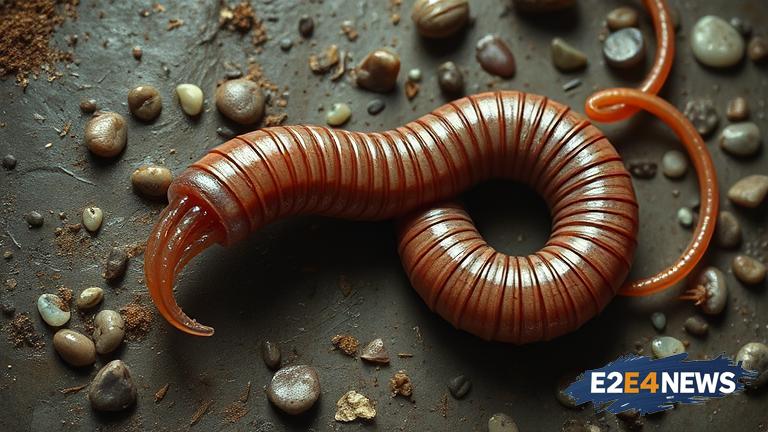A recent case of flesh-eating screwworms has been reported in the United States, marking a rare and alarming occurrence of the deadly parasite. The screwworm, also known as Cochliomyia hominivorax, is a type of fly that lays its eggs in the flesh of mammals, including humans. The larvae that hatch from these eggs then feed on the host’s tissue, causing severe damage and potentially life-threatening complications. The case was detected in a patient in the US, who is currently undergoing treatment. The Centers for Disease Control and Prevention (CDC) has confirmed the diagnosis and is working to prevent further spread of the parasite. Flesh-eating screwworms are typically found in tropical and subtropical regions, and are most commonly associated with livestock. However, human cases can occur, particularly in areas where the parasite is common. The symptoms of a screwworm infestation can be severe and include pain, swelling, and discharge from the affected area. If left untreated, the infection can lead to serious complications, including sepsis and organ failure. The CDC is urging healthcare professionals to be aware of the risks of screwworm infestations, particularly in patients who have recently traveled to areas where the parasite is common. The agency is also working to educate the public about the dangers of flesh-eating screwworms and the importance of seeking medical attention immediately if symptoms occur. The detection of flesh-eating screwworms in the US is a rare occurrence, but it highlights the need for vigilance and awareness about the risks of exotic parasites. The CDC is working to prevent further spread of the parasite and to protect public health. The agency is also collaborating with international partners to monitor the spread of the parasite and to develop strategies for prevention and control. In addition to the CDC, other health organizations, including the World Health Organization (WHO), are also working to address the global threat of flesh-eating screwworms. The WHO has classified the screwworm as a major public health concern, and is working to develop guidelines for prevention and treatment. The detection of flesh-eating screwworms in the US is a reminder of the importance of global health security and the need for international cooperation to address the threats of exotic parasites. The case also highlights the importance of awareness and education about the risks of flesh-eating screwworms, particularly among healthcare professionals and the general public. By working together, we can prevent the spread of this deadly parasite and protect public health. The CDC and other health organizations will continue to monitor the situation and provide updates as more information becomes available. In the meantime, it is essential to be aware of the risks of flesh-eating screwworms and to take steps to prevent infestations, particularly in areas where the parasite is common. This includes wearing protective clothing, avoiding contact with potentially infected animals, and seeking medical attention immediately if symptoms occur. By taking these precautions, we can reduce the risk of flesh-eating screwworms and protect public health. The detection of flesh-eating screwworms in the US is a serious concern, but it is also an opportunity to raise awareness about the risks of exotic parasites and the importance of global health security. By working together, we can address the threats of flesh-eating screwworms and other deadly parasites, and protect public health.
